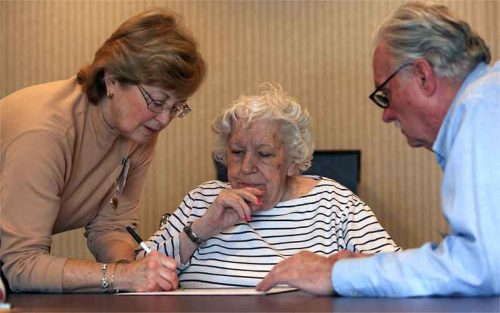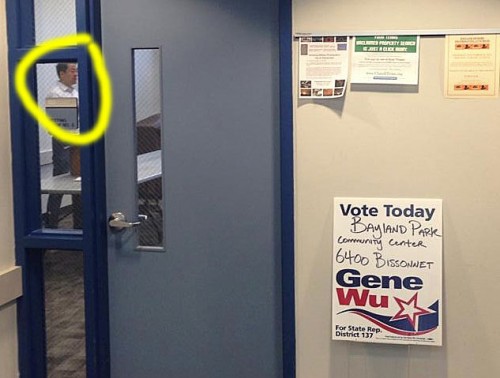

I was shocked to learn from my friend and colleague, Alan Vera, of the reversal and repeal of the nursing-home voting law (designed to prevent voter fraud) by the House during the current special session. Now, having read this article on the website for the Austin American-Statesman, Texas Two Step: House stiffens penalties for nursing home ballot fraud while repealing a bipartisan solution, I think the public record needs to be corrected about how this bill evolved to passage during the 2017 Regular Session.
I have served as the Legal Counsel to the Harris County Republican Party since July, 2014 (this post is not an official statement by or on behalf of the HCRP, but instead, contains my own personal statements and opinions). In that capacity, I have worked closely with Alan Vera and with our county election officials during each election cycle since (and including) the 2014 General Election, Immediately after that election, Alan discussed with me reports he had heard about abuse of mail-in ballot applications and voting at nursing homes and other long-term care facilities in Harris County, across the state, and across the country, and he introduced me to the law that Wisconsin had adopted to address this issue. Convinced of its merit, I worked with Alan to prepare an initial draft of a similar law for Texas.
Simply put, this bill changed the process from one that created the conditions by which persons other than the voter could fill-out the applications, obtain access to the ballots and “vote” for the voter, to a process whereby an election judge and representatives of each political party met with and witnessed the vote of each voter to assure that they wanted to vote, had the capacity to vote, and were casting their own vote. Although the process of recruiting and training such election officials would add some burden to local governments, the financial impact would be minimal while the benefit to the integrity of the voting process and the protection of vulnerable voters would be priceless.
Prior to the 2105 Regular Session, I discussed this proposal with a GOP member of the Texas Senate and worked with his office to prepare a draft of such a bill. Unfortunately, the draft prepared by the Legislative Counsel and the Senator’s office was not completed in time to introduce the bill in 2015; but Alan and I continued to work with the draft over the next year to have it ready to introduce in the 2017 Session. In the meantime, we obtained further input from our local election officials, the Secretary of State’s office, and lawyers with the Republican Party of Texas to improve the language of the bill.
This draft was circulated to members of the Harris County legislative delegation in 2016, and Rep. Oliverson enthusiastically supported the bill and agreed to sponsor it in the House. Additionally, Rep. Schofield supported our effort and prepared an alternative draft for introduction. Our local election officials, and a counsel for the RPT, Eric Opiela, supported our effort and worked with Alan and Rep. Oliverson, as well as Rep. Schofield to improve the bill both before and after it was introduced. Eventually, Senator Joan Huffman threw her support behind the bill in the Senate, and worked with Alan and Eric to further improve the bill. Prior to that time, no Democrat had participated in the preparation of the proposed bill.
However, through the efforts of these legislators, some local election officials, Alan and Eric, the bill quickly drew bi-partisan support because the corruption of the mail-in ballot process at nursing homes and long-term care facilities apparently had impacted some Democratic primaries races. In fact, the only real opposition to the bill during its movement through the legislature came from certain county election administrators who either did not understand, or chose to ignore, how the law would work, and how it had been successfully implemented in Wisconsin—in a bi-partisan way. These people proved to be impervious to any reasonable discussion of the merits of the bill, and simply folded their arms and stomped their feet in opposition—they obviously preferred the status quo rather than have to do a little bit more recruitment and training of election volunteers in their counties.
And, as an aside, it is nonsense to believe that this law would benefit one party (Democrats) over another (Republicans) in the General Election. In fact, the evidence in Wisconsin has shown that the Republican Party has grown in that state, and won more state and local elections, after implementation of the law (which makes sense when you consider that the GOP usually polls better in the over-65 age group than the Democratic Party).
Unfortunately, some people have chosen to give credit to the rhetoric used by some Democratic supporters to persuade their colleagues to support the bill, rather than actually learn who drafted the law, why the law was drafted, and to see and understand the merits of the law that was passed. These critics have elevated the sausage-making, partisan rhetoric during the heat of the legislative process to gospel, and then used such rhetoric as an excuse to kill this landmark law. This is the gutless legislative equivalent of being scared by your own shadow, and says more about the bankrupt views of these critics than it does of the law they want to kill.
The bi-partisan support for and passage of this bill, which would have addressed a real voter-fraud problem acknowledged by both parties and public officials, should have been a proud moment for our state and our elected officials. Instead, it has been hi-jacked and repealed by those who now must own and defend a status quo that takes advantage of some of our state’s most vulnerable voters.
I want to thank Rep. Oliverson, Rep. Roberts, and Senator Huffman, as well as all of those legislators from both sides of the aisle who bravely supported this bill. Likewise, the next time someone from our party complains about voter-fraud, Governor Abbott and Rep. Goldman need to take a long look in the mirror and realize they now have endorsed continuation of voter fraud, rather than having embraced a proven way to stop it.
As for the person quoted in the Austin American-Stateman article—Aaron Harris, whoever he is—if Rep. Oliverson or Alan Vera don’t take him up on his offer to debate the merits of this bill, I’ll gladly meet him in any public forum to do so—his position is simply ridiculous.

 CherVerified
CherVerified Anita MonCrief
Anita MonCrief